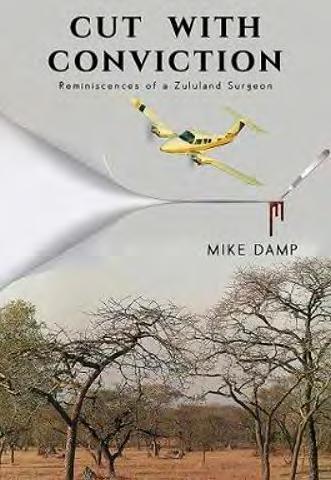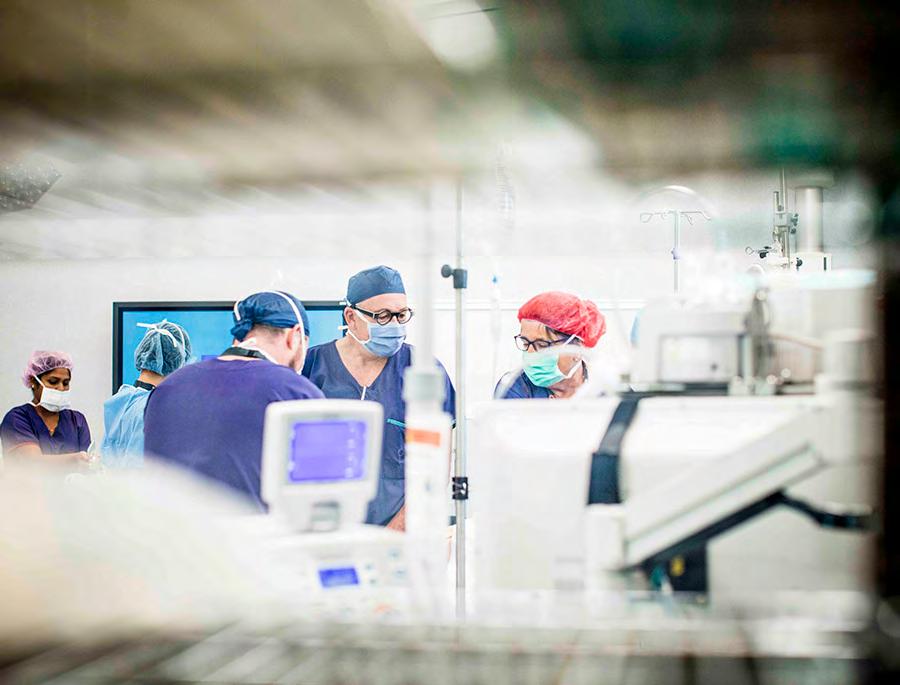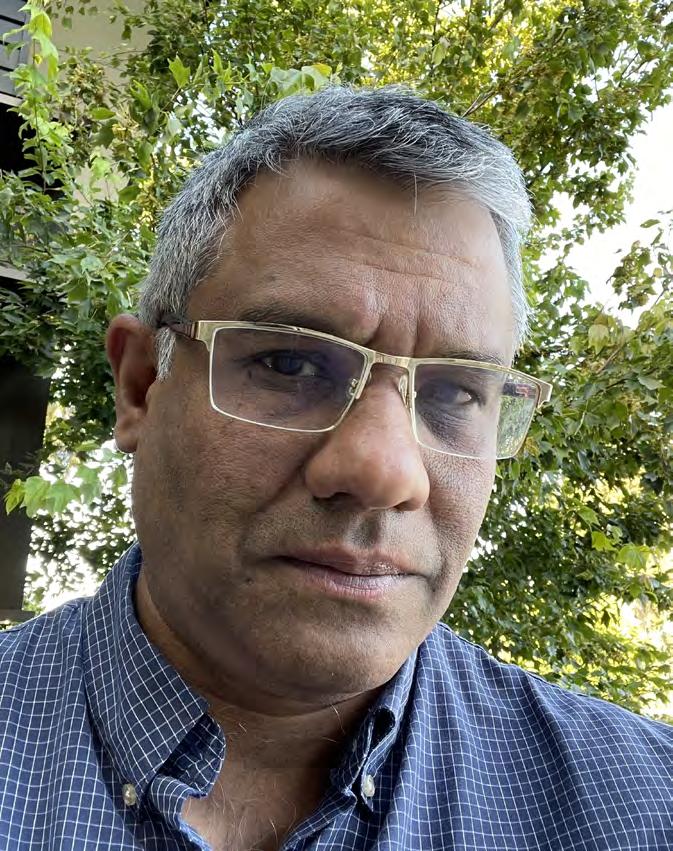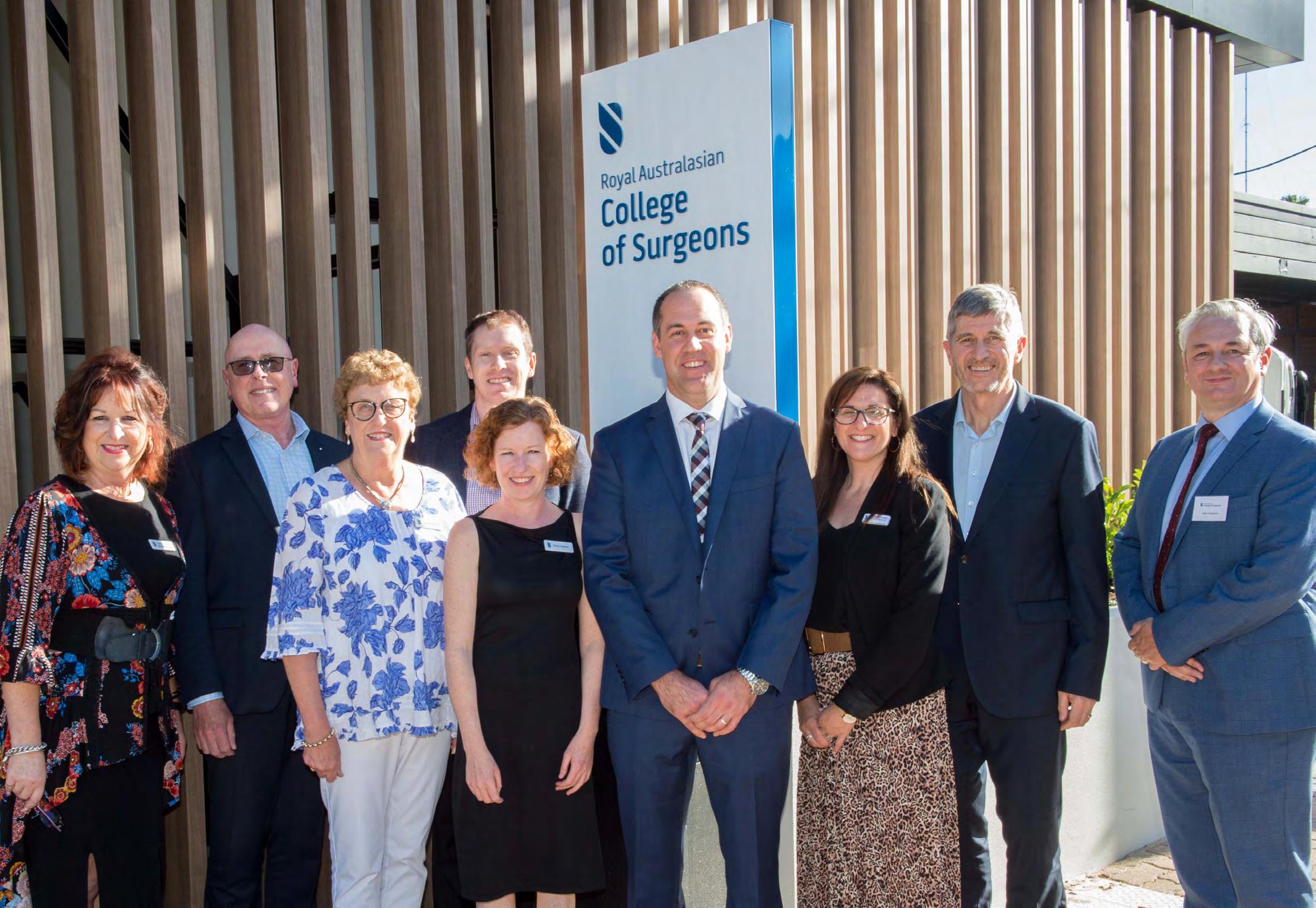Surgical News | Volume 22 | Issue 01
a post-COVID-19 voice, airway and swallowing unit at Mount Sinai Hospital, of which I am the lead, to understand and treat this subset of patients. I strongly applaud the Australian and New Zealand federal, state and territory governments’ response to the pandemic, and there have been times when we have had bouts of homesickness. However, while this past year has brought extreme challenges, I am grateful to have been witness to this historic time and to still have the love of my young family to return home to each day. Dr Diana Kirke, FRACS
Dr Diana Kirke with her family
hospitalised across the Mount Sinai Health system. By that stage, Reade and I had personally known people who had passed. I had heard about the refrigerated trucks stationed behind the Elmhurst Hospital Center to store the deceased, but it was still jarring to see them first hand. One of the first cases that I performed on my return was a COVID-19 tracheostomy. By that stage the protocols in place had very quickly adapted and matured.
I felt, and still do in the midst of a second surge, extremely well protected at work and I have recently received the first dose of the Pfizer vaccine. It was bittersweet, however, when I developed mild airway swelling and have been subsequently told not to take the second dose. Since May we have been seeing a lot of post-COVID-19 patients with voice, airway and swallowing disorders and in response to this we have established
REFERENCES 1.Majidi S, Fifi JT, Ladner TR, Lara-Reyna J, Yaeger KA, Yim B, et al. (2020). Emergent large vessel occlusion stroke during New York City’s COVID-19 outbreak: clinical characteristics and paraclinical findings. Stroke, 51(9), 2656–2663. http://doi.org/10.1161/STROKEAHA.120.030397. 2. Schwam ZG, Jategaonkar AA, Teng MS, Horn S, Lebovics RS, Genden EM, & Wanna GB. (2020). Staying ahead of the curve: early lessons from a New York City otolaryngology department’s organizational response to the coronavirus pandemic. Laryngoscope Investigative Otolaryngology, 5(3), 401–403. http://doi.org/10.1002/lio2.400. 3. Badhey AK & Laitman BM. (2020). If not us, who? And if not now, when?: perspective from a COVID-19 intensive care unit run by otolaryngology residents. JAMA Otolaryngology Head & Neck Surgery, 146(11), 997–998. http://doi.org/10.1001/jamaoto.2020.3232.
A new course for supervisors In 2020 the Royal Australasian College of Surgeons (RACS) implemented a new, more contemporary course for surgical supervisors and trainers, designed to better meet their current and future needs. Following a review of the Supervisors and Trainers for SET (SAT SET) course, the course was retired and a new course, Induction for Surgical Supervisors and Trainers, was developed. While the course primarily aims to support surgical supervisors and trainers in fulfilling their role, it also looks to improve the Trainee experience through educating Supervisors and Trainers with more contemporary content based on best practice and evidence-based pedagogy. The course provides greater support and engagement to supervisors and trainers, which, in turn, will enhance
working relationships and improve feedback techniques with their Trainees. As part of the ongoing professional development strategy to provide greater accessibility of courses, and also in response to the COVID-19 pandemic, the RACS education team, together with surgical stakeholders, has taken an integrated approach in the development of the new course. Delivered through the RACS eLearning platform, the Induction for Surgical Supervisors and Trainers course will be a combination of three online eLearning modules and two webinars. By the end of this course, participants will be able to: • identify the relationship and the communication pathways between RACS and its training boards
• identify RACS policies/procedures • describe roles and responsibilities of SET supervisors, trainers and trainees • discuss how to support trainee learning and provide a safe learning environment • identify RACS assessment requirements • plan how to evaluate their supervision. The first online Induction for Surgical Supervisors and Trainers course is scheduled for mid-2021, with registrations opening shortly. To register your interest in attending this course, please email pdactivities@surgeons.org
25




























